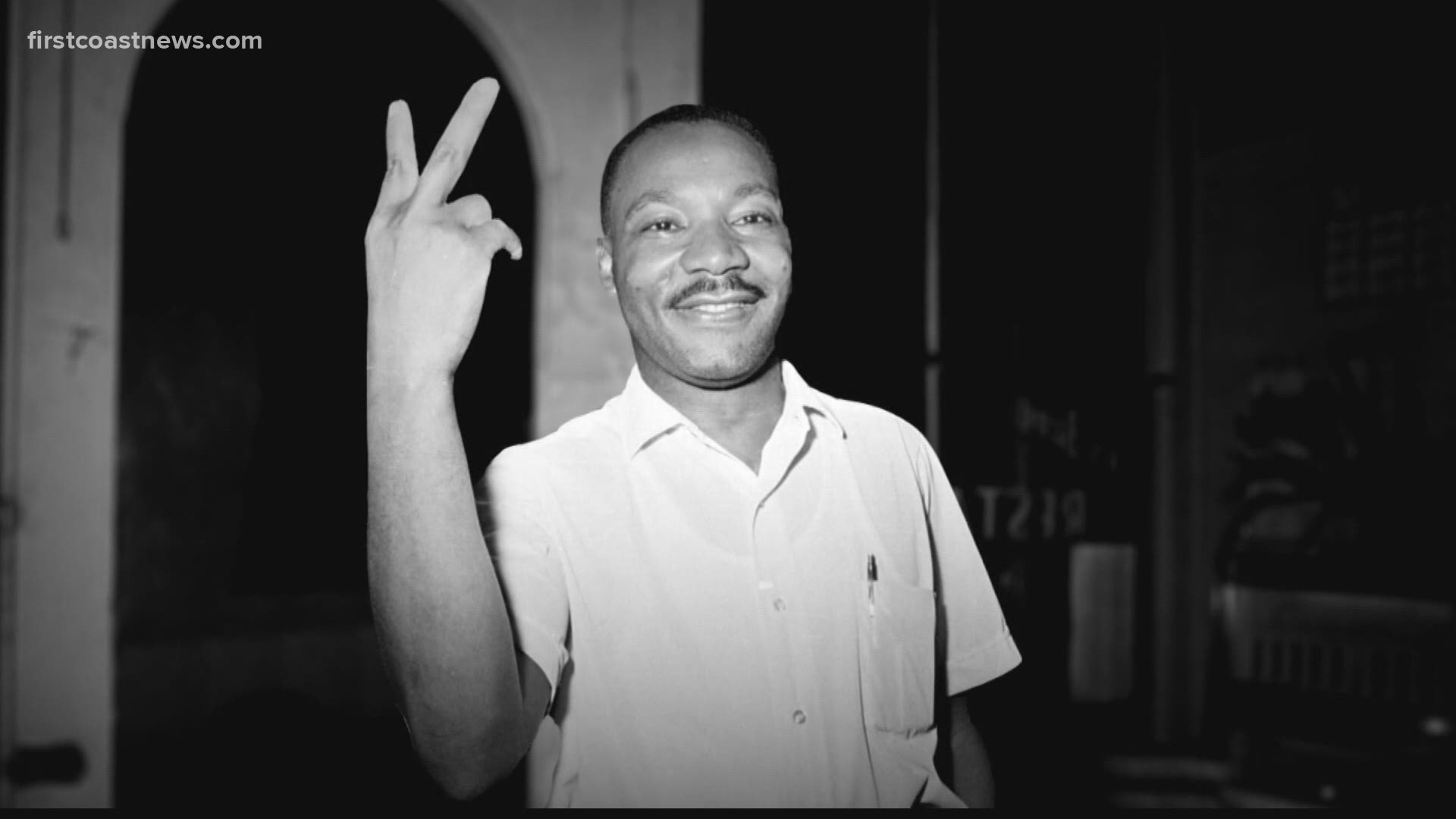ST. AUGUSTINE, Fla. — Dr. Martin Luther King Jr. and the Civil Rights Act of 1964 have deep ties to the First Coast.
"We heard these stories around the dinner table," Dr. Earl Johnson Jr., whose father was King's attorney, said. "You know, Mom, referred to Dr. King as Martin and Ambassador Young as Andy."
Johnson said his parents would tell him and his siblings stories about their work in the Civil Rights Movement. That work included his father, civil rights attorney Earl Johnson Sr., representing King before a grand jury at the federal courthouse in Jacksonville.
"Dr. King was arrested in St. Augustine," local historian David Nolan said.
"This was the only place he was arrested in Florida. It was on June 11, 1964, and he and a group were attempting to eat at what was then the brand new motel on the bay front, the Monson Motel," Nolan explained. "They were refused admission by the manager of the hotel and arrested and taken to jail."
Fellow historian Alan Bliss, CEO of the Jacksonville Historical Society, said King and others were also arrested on civil disobedience charges for violating St. Augustine's ordinances prohibiting public demonstrations.
"It’s easy to forget today that many people disdained Dr. Martin Luther King," Bliss said. "A lot of people hated him during his lifetime, as witness the fact that he died violently at the hands of an assassin."
"Dr. King was very focused on St. Augustine, which was really a bastion of white supremacy, which had infiltrated its governmental system," Johnson said. "His focus was really to push forward the Civil Rights Act of 1964, which was pending."
“St. Augustine at that time was a kind of great stage for a moral drama that was being enacted before a national and international audience, showing what was wrong with the old way of doing things with the system of racial segregation," Nolan said.
According to both Nolan and Johnson, police moved King to Jacksonville because there were concerns for his safety in the St. Johns County Jail.
Judge Bryan Simpson ruled in favor of King, stating city officials couldn't interfere with King marching in St. Augustine. This ruling greatly impacted the Civil Rights Act of 1964 becoming law, according to Nolan.
"there were two great legislative accomplishments in the Civil Rights movement, and one was the Voting Rights Act of 1965," Nolan said. "That grew directly out of Selma, Alabama, and the Selma to Montgomery March, and the other was the Civil Rights Act of 1964."
"That came directly from the streets of St. Augustine, Florida," Nolan said. "That was the result of the great moral drama that took place here in the spring and early summer of 1964."
Prior to King's arrest, he had been staying in a beach house on Anastasia Island. According to Nolan, the local paper published directions to the home, and it was shot up and firebombed several times. Luckily, King wasn't there when it happened.
King was still in St. Augustine when he got word that the Senate passed the Civil Rights bill. He held up his fingers making a V for victory.

